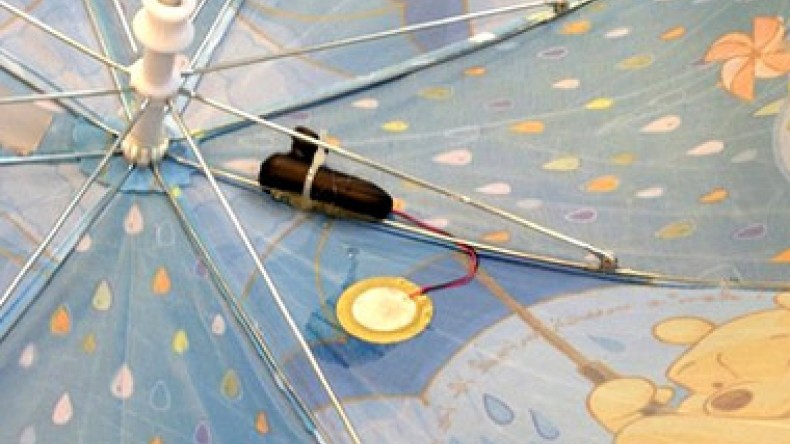
Smart umbrellas 'could collect rain data'
How would you fancy being a mobile weather station?
Rolf Hut, from Delft University of Technology in The Netherlands, plans to turn our umbrellas into rain gauges, the BBC reports.
His prototype smart brolly has a sensor that detects raindrops falling on its canvas, and uses bluetooth to send this information via a phone to a computer.
Dr Hut envisages thousands of us crowdsourcing data for the researchers who have come to rely on an ever dwindling number of scientific gauges.
"We have radar and satellites, but we're not measuring rain on the ground as we used to; it's expensive to maintain the gauges.
"Therefore, agencies are reducing the number, and that's a problem for people who do operational water management or do research into hydrology because they don't have the access to the data they used to," he told BBC News.
Dr Hut was showing off his rough-and-ready prototype here in Vienna at the European Geosciences Union (EGU) General Assembly.
The child's Winnie The Pooh brolly incorporates all off-the-shelf components.
A piezo sensor stuck under the canvas measures the vibrations caused by falling raindrops.
This is wired into a 20-euro mobile-phone Bluetooth-earpiece, which dumps its information into an app. The smartphone then links all its data over the cell network to a laptop.
Experiments in the lab and in Dr Hut's back yard during a light shower have delivered some encouraging results. He is getting a reasonable correlation with a proper rain gauge sitting alongside.
It certainly seems worthwhile to persevere with the idea, he says, even if the development road ahead is a long one.
"Eventually every umbrella would come with this technology, or at least premium umbrellas would. And if you wanted to be involved, the moment you opened the umbrella, it would start sending data to your phone which uploads it to the cloud.
"We would then have hundreds of rain gauges moving along a cityscape and that could greatly improve our ability to understand urban hydrology; it would greatly improve our ability to predict urban flooding and take measures when things are going bad."
Newsfeed
Videos






























